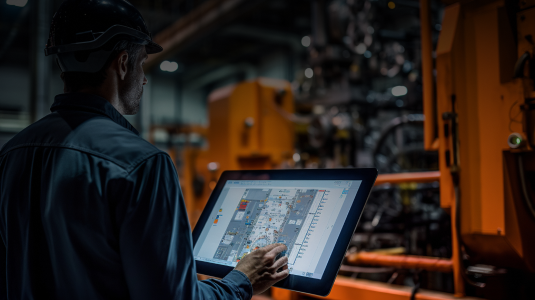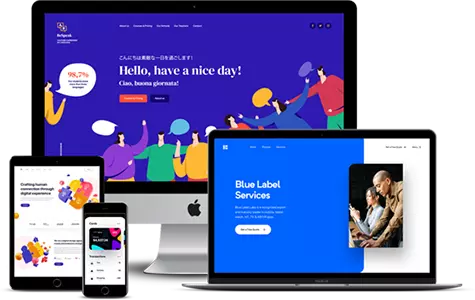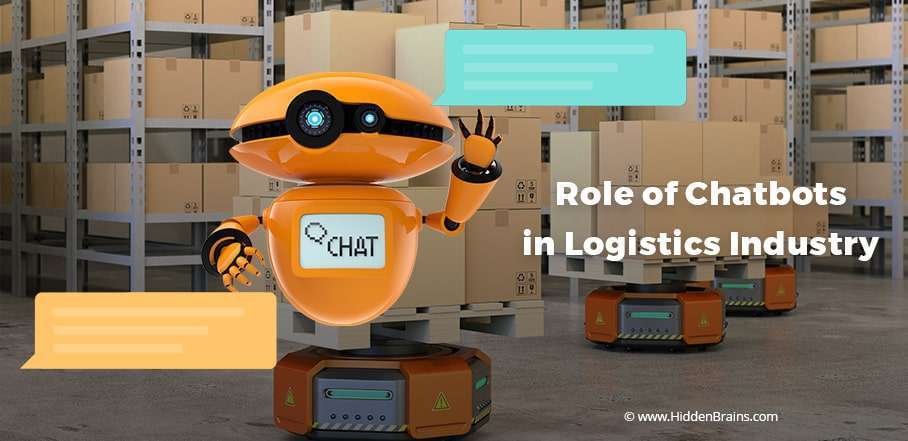Table of Contents
The size of the Chatbot market is expected to reach around “1.25 billion U.S. dollars in 2025, a remarkable increment from the market estimate in 2016, which remained at 190.8 million U.S. dollars.” Chatbot, also known as a conversational bot or conversational man-made brainpower use AI programming to direct a discussion in common language by means of sound or content. Organizations make use of Chatbot technology to save manpower, money and time. Chatbots appear natural and simple to use and are continuously accessible. It is important to leverage expertise of Chatbot development company to gain competitive advantage.
Business coordination has generally been characterized by an emphasis on trucks and transportation systems. In any case, recently a huge number of new advancements have reformed the logistics industry.
- Warehouse framework could increase its efficiency and automate the picking methodology, ensuring that crucial things are immediately found and packaged for movement.
- Rapid advances in GPS development offer the extent of new capacities.
- IoT sensors empower executives to screen key estimations for temperature, vibration, load weight, and machine execution over their entire task force. This mechanism will help alert regarding any basic necessities for part substitutions or fixes. It will help keep them educated regarding any potential perils to shipments.
- Although self-driving vehicles and robot movements are still in their nascency they offer a mind-blowing method for improving security and diminishing last-mile transport costs.
From the coordination perspective, there are two different ways Chatbots can profit the organization:
- Customer-facing tasks, for example, conveyance booking, shipment following, conveyance related request;
- Supply chain tasks, for example, warehousing, armada the board, route.
Chatbots in Supply Chain Operations
A bot is great at reducing the back-and-forth communication that a human would typically have to do as a coordination task amongst multiple people, and all use cases will directly apply to voice as well. Chatbots as a Logistic IT Solutions can assist both the customer-centric side of a logistics business, as well as operational processes. The logistics business depends mainly on different types of data that comes from different sources and needs to be processed, often concurrently.
- Customer Orders. New orders received from customers, orders in progress, delayed orders, canceled orders, unclaimed orders – all these needs to be processed in real-time and the flows must be updated according to the current situation.
- Warehouse Matters. The inventory, scheduled deliveries, floor plans and order tracking information, the warehouse locations need to be updated constantly.
- Fleet Information. A Logistics company may need to know how many vehicles are currently en route, in the state of maintenance, idle or out of order. To avoid delays, the company must be prepared to replace a broken vehicle or increase the number in case demand. The fleet information must be updated and adjusted as soon as possible.
- Personnel Information. While self-driving vehicles are still in the infancy stage, logistics companies rely on drivers to deliver goods. Thus, an updated record showing employees who are currently working or their status such as vacation, sick leave, or on a day off is in the must-have league.
Benefits of Chatbots in the Logistics Industry
A bot is a software that is intended to streamline several tasks related to logistics such as booking tickets, cargo tracking, finding rates, etc. Empowered by Artificial Intelligence, Chatbots are capable of striking thought-provoking human conversation. One of the ground-breaking implementations of bots would be for the transportation and logistics industry. Chatbots provide complete transparency and improve visibility of the entire supply chain cycle for the logistics industry, automate quotes for delays if any, manage booking and picking up requests to track the shipments. Chatbots can help the logistics industry overcome the daunting challenge of keeping its customers well informed about the shipment.
Improve Work and Productivity in Real-Time
Chatbots applications can augment human intelligence by acting as contextually aware, personal virtual assistants. When equipped with voice recognition, natural language processing (NLP), and machine learning, Chatbots can learn about work preferences and real-world factors that affect the job. All this data can be used to enhance your work in real-time.
Enhance Customer Experience & Sales Productivity
Chatbots have been addressing people-less customer interactions, taking the level of customer interaction to the next level. AI-powered knowledge bots are transforming enterprise customer experiences and scale sales productivity.
Automate Repetitive Tasks
Chatbots have shown the ability to reduce operational costs for logistics companies, while at the same time increase employee productivity in different ways by automating mundane and repetitive administrative tasks such as meeting scheduling, CRM update, and document generation. Chatbots can automate routine tasks so employees can focus on higher-value work.
Streamline Workflow Between Users
A bot is great at cutting down the back-and-forth communication that a human would typically have to do in a coordination task amongst multiple people, and all of these use cases could apply to voice as well.
Boost Efficiencies
A Chatbot is a useful tool with many available features to boost delivery efficiencies. Drivers are accustomed to providing updates via their phone and text message. AI-enabled Chatbots facilitate and help drivers with critical updates in a timely manner and convenient manner. Technology platforms for tracking and communications in the logistics and transport industry include in-cab systems, mobile phone applications, and much more.
Finally
Customer demands and increasing competition is compelling the logistics industry to change their focus to build Chatbots or virtual agents that can manage customer queries 24*7 without any delay.










































